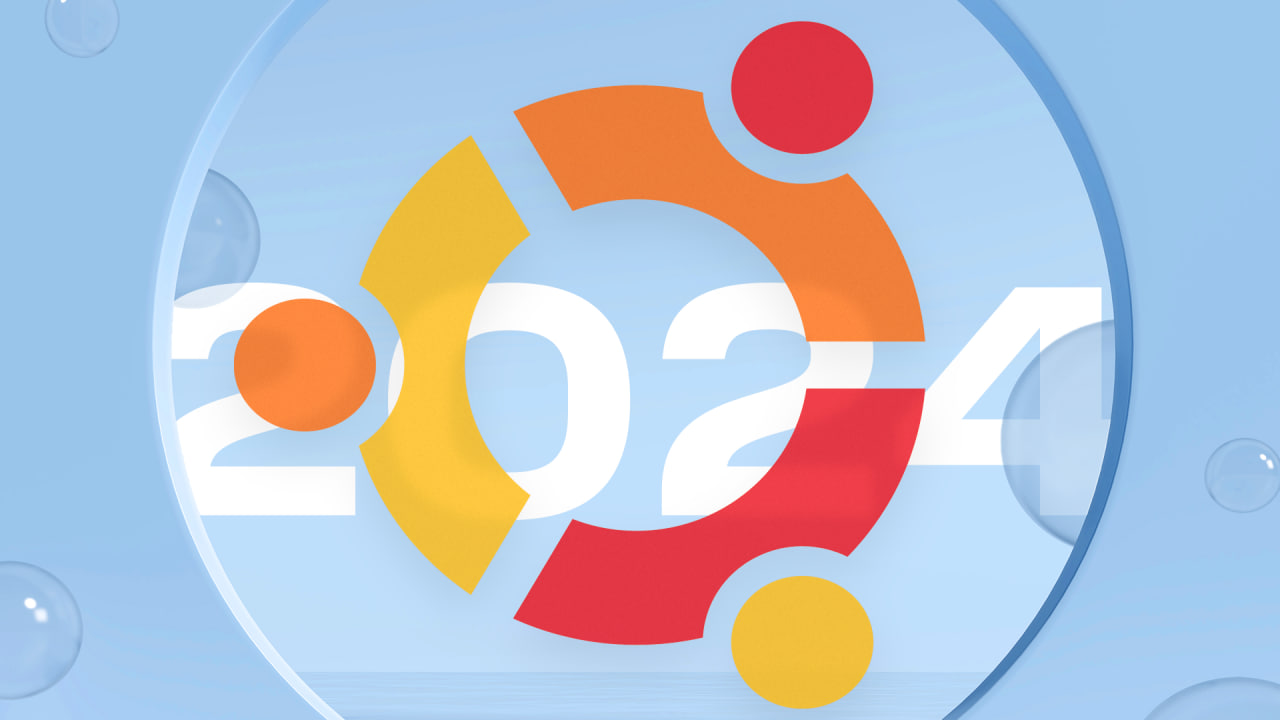the final release is coming soon. Changes and features of the distribution

The final release of the distribution will be published on April 25 Ubuntu 24.04 “Noble Numbat”. In fact, it is ready now, the only thing left for the developers is to thoroughly test the new product for errors, and if there are any, then fix them. The new version belongs to the category of releases with a long period of support; updates for it will be generated over the course of 12 years. Details are under the cut.
What's new in the distribution?

Many things. For example, the developers updated the desktop to the release of GNOME 46. It added a global search function, increased the performance of the file manager and terminal emulators. Plus, experimental support for the VRR (Variable Refresh Rate) mechanism has appeared, the configurator has been updated and the notification system has been optimized.
As for the kernel, it has been updated to version 6.8.
In addition, the most important server packages have been updated, including Nginx 1.24, Apache httpd 2.4.58, Samba 4.19, Exim 4.97, Clamav 1.0.0, Chrony 4.5, containerd 1.7.12, Django 4.2.11, Docker 24.0.7, Dovecot 2.3. 21, GlusterFS 11.1, HAProxy 2.8.5, Kea DHCP 2.4.1, libvirt 10.0.0, NetSNMP 5.9.4, OpenLDAP 2.6.7, open-vm-tools 12.3.5, PostgreSQL 16.2, Runc 1.1.12, QEMU 8.2 .1, SpamAssassin 4.0.0, Squid 6.6, SSSD 2.9.4, Pacemaker 2.1.6, OpenStack 2024.1, Ceph 19.2.0, Openvswitch 3.3.0, Open Virtual Network 24.03.
Another important change is that now the sysctl vm.max_map_count parameter, which determines the maximum number of memory mapping areas available to a process, has been increased by default from 65,530 to 1,048,576. This change is important because it improves compatibility with Windows games that run via Wine. Now, as far as we know, DayZ, Hogwarts Legacy, Counter Strike 2, Star Citizen and THE FINALS are launching. So there are more games, which is great.
Other updates: GCC 14-pre, LLVM 18, Python 3.12, OpenJDK 21 (OpenJDK 8, 11 and 17 are optionally available), Rust 1.76, Go 1.22, .NET 8, PHP 8.3.3, Ruby 3.2.3. The following applications were also updated: Firefox 124 (built with Wayland support), LibreOffice 24.2, Thunderbird 115, Ardour 8.4.0, OBS Studio 30.0.2, Audacity 3.4.2, Transmission 4.0, digiKam 8.2.0, Kdenlive 23.08.5, Krita 5.2.2.

We must not forget about the subsystems – Mesa 24.0.3, systemd 255, BlueZ 5.72, Cairo 1.18, NetworkManager 1.46, Pipewire 1.0.4, Poppler 24.02, xdg-desktop-portal 1.18.
Due to security issues, it was decided to remove packages such as pptpd and bcrelay, as well as the PAM module pam_lastlog.so, which does not solve the 2038 problem.
By default, compiler options are enabled when building packages. This is necessary to improve security—to make it more difficult to exploit vulnerabilities. In gcc and dpkg, a mode such as “-D_FORTIFY_SOURCE=3” is enabled. It detects possible buffer overflows when executing string functions that are defined in the string.h header file. Previously, the “_FORTIFY_SOURCE=2” mode was used; the difference from it is additional checks. In general, they can degrade performance, but this is unlikely, and there are no user complaints about this problem.
Another important update is a change in priority in the APT package manager. Thus, the priority for the “proposed pocket” repository has now been changed, in which preliminary testing of new versions of packages is carried out. This change is intended to reduce the likelihood of unstable updates being automatically installed if the “proposed pocket” repository is enabled. Well, after activating this repo, all updates will not be transferred from it; instead, the user will be able to selectively install updates for the required packages using the “apt install
/ -proposed” command. As for network configuration, the developers decided to use the Netplan 1.0 release of the toolkit, which provides storage of settings in YAML format and provides backends. It abstracts configuration access for NetworkManager and systemd-networkd. The new version now has the ability to use WPA2 and WPA3 simultaneously, adds support for Mellanox VF-LAG network devices with SR-IOV (Single-Root I/O Virtualization) and implements the “netplan status –diff” command. It is needed to visually assess the differences between the actual state of the settings and the configuration files.
The Active Directory Certificate Auto Enrollment (ADSys) mechanism is activated, which allows you to automatically obtain certificates from Active Directory services when group policies are enabled. Automatically obtaining certificates through Active Directory also applies when connecting to corporate wireless networks and VPNs.
By the way, the Ubuntu App Center application manager, written in the Dart language using the Flutter framework and adaptive interface layout methods, has been optimized to work correctly on screens of any size. It was previously reported that this new manager will receive a combined interface for working with packages in DEB and Snap formats (if there is one program in Deb and Snap packages, Snap is selected by default). A rating system has also appeared in the application. In it, the five-point rating scale is replaced by voting in the “like/dislike” format (+1/-1), on the basis of which a virtual five-star rating is derived.
Ubuntu Cinnamon uses the Cinnamon 6.0 user environment with initial support for Wayland.
Xubuntu continues to supply environments based on Xfce 4.18.
Ubuntu Mate continues to ship the MATE 1.26.2 desktop environment (the 1.28 branch is already available in the MATE repository, which has not yet been officially announced).
Ubuntu Budgie uses the Budgie 10.9 desktop environment.
Kubuntu continues to ship KDE Plasma 5.27 by default. KDE 6 will be offered in the fall release of Kubuntu 24.10. Updated logo and color scheme.
The Ubuntu App Center replaced the old Snap Store interface. Compared to Ubuntu 23.10, a new application category has been added – “Games” (GNOME games have been removed from the package).
The developers did not forget about assemblies for “raspberries” and others. Thus, in this release, assemblies for Raspberry Pi 5 (server and user) and StarFive VisionFive 2 (RISC-V) boards have been updated.
The developers have prepared images for Ubuntu, Ubuntu Server, Lubuntu, Kubuntu, Ubuntu Mate, Ubuntu Budgie, Ubuntu Studio, XubuntuUbuntuKylin (China edition), Ubuntu Unity, Edubuntu And Ubuntu Cinnamon.
If you have already tried the new product, tell us about your impressions in the comments.



